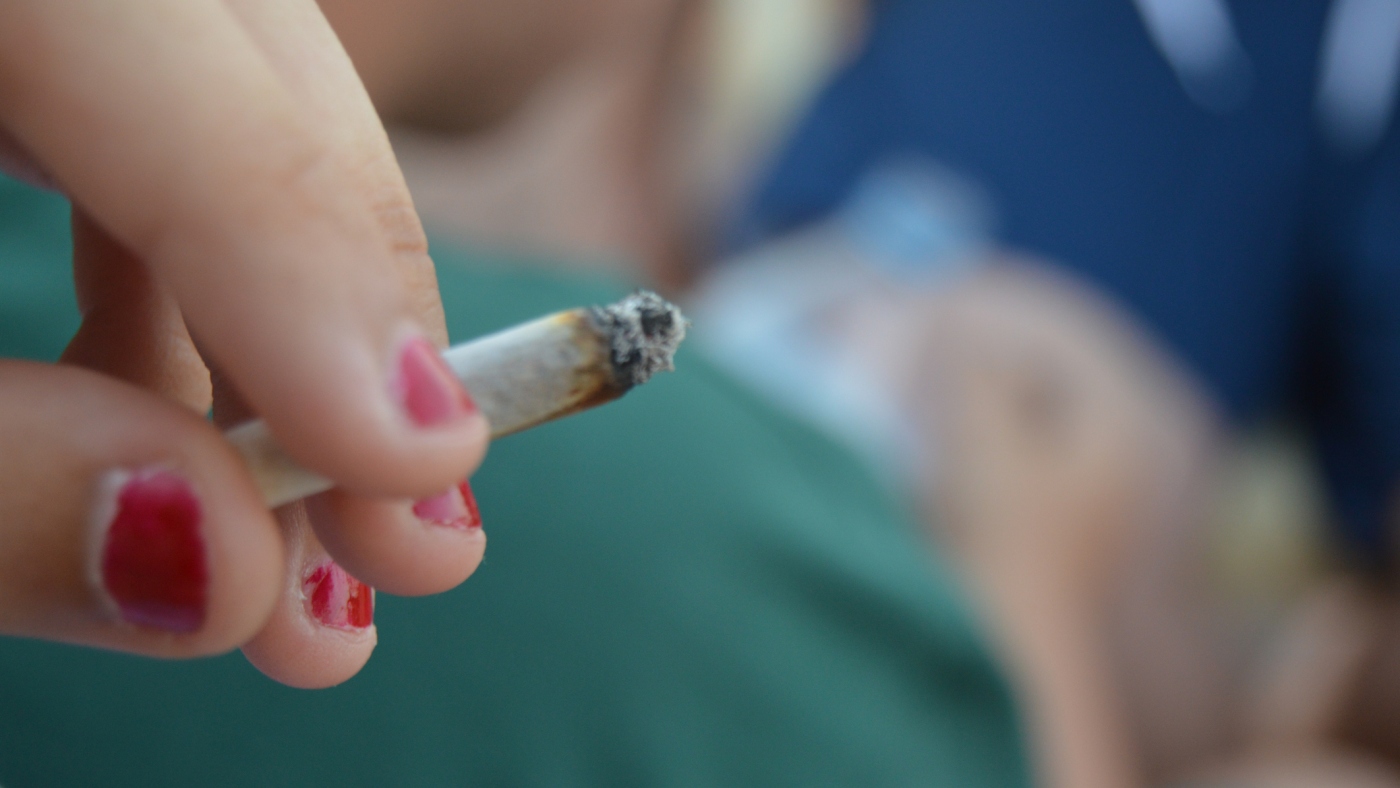The adolescent mind continues to be growing, and using hashish recurrently might disrupt wholesome neural improvement.
Sara Ruiz//iStockphoto/Getty Pictures
cover caption
toggle caption
Sara Ruiz//iStockphoto/Getty Pictures
Teenagers who begin utilizing hashish earlier than age 15 are extra probably to make use of the drug typically later of their lives. They’re additionally extra prone to develop psychological and bodily well being issues in younger maturity in comparison with their friends who didn’t use the drug in adolescence.
These are the findings of a brand new research in JAMA Community Open.
«This additional builds the case that hashish use in adolescence adversely impacts the [health] trajectories of those that use it,» says psychiatrist Dr. Ryan Sultan at Columbia College, who wasn’t concerned within the new analysis.
The brand new research used information from the Québec Longitudinal Examine of Little one Improvement. Researchers in Montreal, Canada, have been following greater than 1,500 youngsters since delivery into younger maturity to grasp the elements that affect their improvement and their well being. Among the many numerous features of the youngsters’ lives and habits scientists have recorded is hashish use between ages 12 and 17.
The researchers discovered {that a} majority of teenagers — 60% — did not use hashish in adolescence. Among the many remaining 40%, half began utilizing hashish of their late teenagers and by the point they turned 17, they used the drug occasionally — lower than as soon as a month. The remaining 20% began utilizing marijuana earlier than they turned 15, and by age 17, they have been utilizing it a minimum of as soon as a month.
This final group was extra prone to search well being care in younger maturity for each psychological and bodily well being situations in comparison with those that did not use the drug as younger teenagers.
«The danger is concentrated amongst those that begin early and use steadily,» says psychologist and the research’s principal writer Massimiliano Orri at McGill College.
Early, frequent hashish customers had a 51% increased probability of in search of take care of psychological well being issues in younger maturity in comparison with those that did not use the drug. And that threat was calculated after controlling for a variety of confounding elements which might be identified to affect well being, like bullying or lack of parental involvement.
Equally, early and frequent customers of hashish had an 86% increased probability of needing take care of bodily well being wants.
«We have now some indication that respiratory issues have been most steadily reported and in addition accidents and unintentional accidents,» says Orri.
These bodily well being issues might should do with intoxication from hashish, however may be on account of withdrawal signs, write Orri and his colleagues within the paper.
«That actually is smart,» says psychologist Krista Lisdahl on the College of Wisconsin, Milwaukee, who additionally research teenage mind improvement and well being, however wasn’t concerned within the new analysis. «It is alarming and one thing that we actually should be monitoring extra intently right here in america as effectively.»
A serious energy of the research is that Orri and his colleagues managed for therefore many confounding elements, provides Lisdahl.
«There are a whole lot of elements which might be co-linked with bodily well being in addition to psychological well being,» says Lisdahl. And the brand new research managed for a lot of of them, together with «household, parental battle and parenting fashion, in addition to parental monitoring of the kids.» Additionally they checked out elements on the particular person degree like social abilities, peer relationships and whether or not a child was victimized by friends.
Prior research have additionally discovered a hyperlink between teen hashish use and a better threat of growing psychological well being signs.
Sultan’s current analysis discovered a two to 4 occasions increased probability of growing psychiatric problems for teenagers who used hashish recreationally in comparison with adolescents who do not use the drug in any respect. Different research have steered a hyperlink between early hashish use and psychosis in youth. He and his colleagues additionally discovered a better threat of different impacts like poorer grades and truancy.
«The adolescent mind is constant to develop in a really dynamic vogue throughout the adolescent interval and all the best way into younger maturity,» says Lisdahl. «Utilizing one thing like hashish recurrently throughout this era may disrupt that wholesome neural improvement, particularly in areas of the mind which might be associated to government functioning, which is like problem-solving, planning, possibly controlling other forms of behaviors and impulses, but additionally emotion regulation,» she says.
Take for instance, a teen who’s vulnerable to anxiousness who turns to hashish to really feel much less anxious, says Sultan. «In the event you begin to do this regularly, that is now your technique for managing your anxiousness,» he says. «This turns into your coping ability and also you change into atrophied in any capability to handle it in one other method.»
The identical factor can occur for somebody who makes use of hashish to handle their temper, he provides.
So, for somebody who’s already predisposed to some psychological well being signs, beginning hashish use in adolescence could make it extra probably these signs will worsen over time into psychological well being problems.
For all these causes, Sultan — a toddler and adolescent psychiatrist — says he typically talks to teenagers and oldsters about delaying utilizing hashish till they’re 25, to attenuate the dangers of well being and behavioral points in a while in life.





